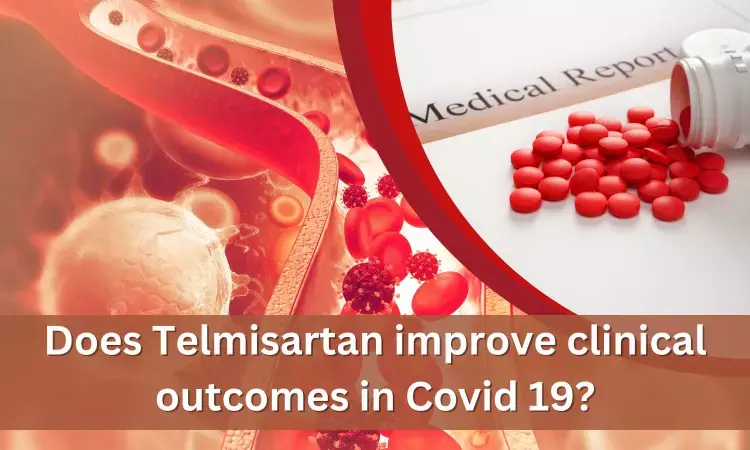- Home
- Medical news & Guidelines
- Anesthesiology
- Cardiology and CTVS
- Critical Care
- Dentistry
- Dermatology
- Diabetes and Endocrinology
- ENT
- Gastroenterology
- Medicine
- Nephrology
- Neurology
- Obstretics-Gynaecology
- Oncology
- Ophthalmology
- Orthopaedics
- Pediatrics-Neonatology
- Psychiatry
- Pulmonology
- Radiology
- Surgery
- Urology
- Laboratory Medicine
- Diet
- Nursing
- Paramedical
- Physiotherapy
- Health news
- Fact Check
- Bone Health Fact Check
- Brain Health Fact Check
- Cancer Related Fact Check
- Child Care Fact Check
- Dental and oral health fact check
- Diabetes and metabolic health fact check
- Diet and Nutrition Fact Check
- Eye and ENT Care Fact Check
- Fitness fact check
- Gut health fact check
- Heart health fact check
- Kidney health fact check
- Medical education fact check
- Men's health fact check
- Respiratory fact check
- Skin and hair care fact check
- Vaccine and Immunization fact check
- Women's health fact check
- AYUSH
- State News
- Andaman and Nicobar Islands
- Andhra Pradesh
- Arunachal Pradesh
- Assam
- Bihar
- Chandigarh
- Chattisgarh
- Dadra and Nagar Haveli
- Daman and Diu
- Delhi
- Goa
- Gujarat
- Haryana
- Himachal Pradesh
- Jammu & Kashmir
- Jharkhand
- Karnataka
- Kerala
- Ladakh
- Lakshadweep
- Madhya Pradesh
- Maharashtra
- Manipur
- Meghalaya
- Mizoram
- Nagaland
- Odisha
- Puducherry
- Punjab
- Rajasthan
- Sikkim
- Tamil Nadu
- Telangana
- Tripura
- Uttar Pradesh
- Uttrakhand
- West Bengal
- Medical Education
- Industry
Does Telmisartan improve clinical outcomes in people with COVID-19? CLARITY Trial reports data on Indian Patients

New Delhi: Can angiotensin receptor blockers disrupting the renin-angiotensin-system, help in improving COVID-19 outcomes?
The answer seems to be 'no' as per the results of CLARITY trial recently published in the BMJ. The trial which was performed on patients at 17 sites in India and Australia, showed that the drug used to treat high blood pressure, was found to be ineffective in treating even mild COVID-19 cases.
CLARITY was a pragmatic, adaptive, multicentre, phase 3, randomised controlled trial promoted by previous data on Mice that suggested that modulation of the renin-angiotensin-system with ARBs might have protective effects in patients with SARS-CoV-2
As a result, a randomised controlled trial was performed involving 787 patients (778 from India and nine from Australia) with an average age of 49 years who were admitted to hospital from May 2020 to November 2021. It Included patients with predominantly mild disease, although the researchers aimed to recruit patients at risk of severe covid.
Half of the total participants received angiotensin receptor blockers or ARBs (drugs widely used to treat high blood pressure and heart disease) and the other half (controls) received a placebo for 28 days.
The primary endpoint was Covid-19 disease severity using a modified World Health Organization Clinical Progression Scale (WHO scale) at day 14. Secondary outcomes were WHO scale scores at day 28, mortality, intensive care unit admission, and respiratory failure. Analyses were evaluated on an ordinal scale in the intention-to-treat population.
A standard dose of the ARB drug, Telmisartan (starting dose 40 mg/d) was used only in India while the type and dose of ARB was at the discretion of the treating physicians in Australia.
These drugs were chosen because they work by regulating the same angiotensin protein that is used by coronavirus to enter the body, and in the laboratory, they have shown potential protectivity against severe effects of coronaviruses.
However, after 14 days of treatment, the researchers found no meaningful difference in illness severity between the two groups. The trial was stopped when a prespecified futility rule was met.
These findings should help to improve clinical practice. The lack of effect provides reassurance that it is safe to use these protective agents in people indicated, with or without covid-19.
The study has some important limitations.
The randomised controlled trial, the researchers were unable to source placebo in Australia, meaning participants and treating clinicians knew they were taking an active drug. Participants were also treated with a relatively low drug dose, so the effect of higher doses remains unknown.
Ref: BMJ 2022;379:e072175
Meghna A Singhania is the founder and Editor-in-Chief at Medical Dialogues. An Economics graduate from Delhi University and a post graduate from London School of Economics and Political Science, her key research interest lies in health economics, and policy making in health and medical sector in the country. She is a member of the Association of Healthcare Journalists. She can be contacted at meghna@medicaldialogues.in. Contact no. 011-43720751
Dr Kamal Kant Kohli-MBBS, DTCD- a chest specialist with more than 30 years of practice and a flair for writing clinical articles, Dr Kamal Kant Kohli joined Medical Dialogues as a Chief Editor of Medical News. Besides writing articles, as an editor, he proofreads and verifies all the medical content published on Medical Dialogues including those coming from journals, studies,medical conferences,guidelines etc. Email: drkohli@medicaldialogues.in. Contact no. 011-43720751


